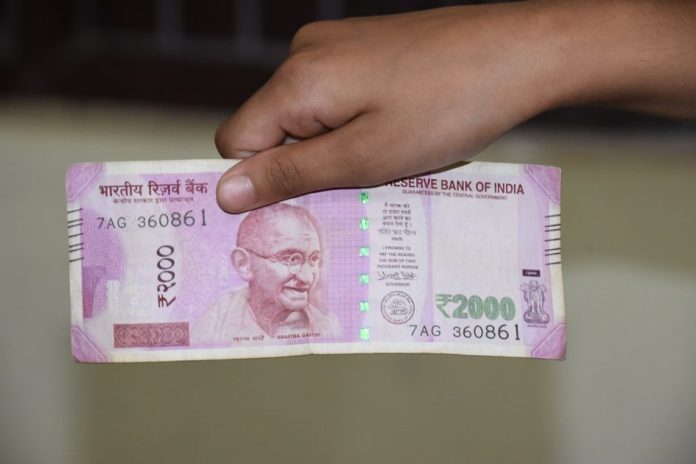The decision by the Reserve Bank of India to withdraw Rs. 2,000 notes from circulation has eased money market rates.
For the unaware, the Reserve Bank of India (RBI) has declared that it will withdraw all Rs 2,000 notes from circulation with quick effect.
It has also led to a rally in shorter bonds as investors have challenged that the RBI’s decision can increase the liquidity of cash in the system.
ATMs supply fake currency notes in UP’s Amethi, customers shocked
Banks are thinking that this move will get more money back into the system, which will improve liquidity and also give a short-term relief in the interest rates.
Morgan Stanley believes that Rs. 1.8 lakh crore of deposits from RBI’s decision could help banks meet the 8% of the incremental requirement for FY24.
The move could give near-term support to tight deposit conditions, said Morgan Stanley.
Man stabs girlfriend, escapes With her cash, valuables in UP
There have been many queries on purchasing gold or silver with Rs. 2000 notes, says jewelry experts. However, the strict KYC rules in place have made the purchase of jewelry less.
Let us give you more insights into RBI’s decision on withdrawing Rs. 2000 notes. The central bank said that the decision was taken only after careful consideration. The Rs. 2000 notes were launched by the government in 2016 as a part of the government’s demonetization campaign.
But the RBI has recently informed the public that the notes are no longer required and that they are being taken back to the banking system in order to improve the efficiency of the currency system.
It will also put downward pressure on inflation. Also, the withdrawal of the notes is said to increase the amount of money that banks will use to lend.
Liquidity is important for the economy because it allows businesses to operate. When businesses have access to liquidity, they can buy raw materials, pay employees, and expand their operations. This helps to create jobs and boost economic growth.
On the other hand, there has been a lot of criticism of the government’s move to take back Rs. 2000 notes. After the announcement made by the central bank last Friday, there has been a lot of discussion and debate on the subject.
The deadline for the deposit or exchange of Rs. 2000 notes is by 30 September 2023. However, the bank has also announced a limit.
The public all over the country can exchange bank notes of Rs. 2000 up to a limit of Rs. 20,000 at one time. You can exchange up to 10 Rs. 2,000 banknotes in one go. If the same activity is done by business correspondents, then the limit is Rs. 4,000, which means only two banknotes.
However, if any bank refuses to exchange or accept Rs 2,000 banknotes then you can ask the concerned bank. If the bank does not reply to your complaint in a time span of 30 days or if you are unsatisfied by the problem resolution then you can file a complaint under the Reserve Bank of India’s Integrated Ombudsman Scheme at the complaint management system portal.

